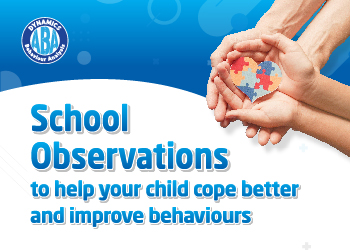|
1. Gaining knowledge
 It is important for parents to look at specific schools to see what they have to offer. Parents can start by visiting schools, or using school guides or websites, which gives them an overview of the schools that are available and accessible to them. With the diversity in curriculums amongst schools, parents can begin to narrow down schools in accordance to their preferred curriculum. One of the key elements that represent and reflect a positive school ethos is the school's values. This sets a benchmark for how successfully a schools vision is embedded into their community and how much the values and principles of a school really impact students. It is important for parents to look at specific schools to see what they have to offer. Parents can start by visiting schools, or using school guides or websites, which gives them an overview of the schools that are available and accessible to them. With the diversity in curriculums amongst schools, parents can begin to narrow down schools in accordance to their preferred curriculum. One of the key elements that represent and reflect a positive school ethos is the school's values. This sets a benchmark for how successfully a schools vision is embedded into their community and how much the values and principles of a school really impact students.
2. Get your hands dirty!
 You are the primary source of support and consistent key figure in your child's life. Ways you can interact with your child in a home environment include identifying toys that your child finds motivating and following their lead! Rather than making your child play with the shiny new toy that YOU bought and want your child to engage in, start by following the child's lead. Play together with what THEY determine to be the shiny toy. You are the primary source of support and consistent key figure in your child's life. Ways you can interact with your child in a home environment include identifying toys that your child finds motivating and following their lead! Rather than making your child play with the shiny new toy that YOU bought and want your child to engage in, start by following the child's lead. Play together with what THEY determine to be the shiny toy.
3. Gain your child's attention and be the giver of all good things!
 Constantly giving instructions creates an aversive environment. Position yourself in situations where your child is feeling positive and capture your child's attention by positioning yourself face to face and at eye level. Pair yourself positively by introducing new items in line with your child's interest. Over time, your child is likely to associate your presence positively and is the first step to establishing rapport with your child. Constantly giving instructions creates an aversive environment. Position yourself in situations where your child is feeling positive and capture your child's attention by positioning yourself face to face and at eye level. Pair yourself positively by introducing new items in line with your child's interest. Over time, your child is likely to associate your presence positively and is the first step to establishing rapport with your child.
4. Rearranging the environment
 Making minor adjustments, such as strategically positioning toys or activities your child enjoys in locations that necessitate their seeking assistance, like on high shelves or within closed containers hidden behind other items, can enhance the quality of social interactions between you and your child. This approach not only encourages your child to develop communication skills by asking for what they desire but also provides them with the opportunity to receive positive reinforcement from you. Making minor adjustments, such as strategically positioning toys or activities your child enjoys in locations that necessitate their seeking assistance, like on high shelves or within closed containers hidden behind other items, can enhance the quality of social interactions between you and your child. This approach not only encourages your child to develop communication skills by asking for what they desire but also provides them with the opportunity to receive positive reinforcement from you.
|





 It is important for parents to look at specific schools to see what they have to offer. Parents can start by visiting schools, or using school guides or websites, which gives them an overview of the schools that are available and accessible to them. With the diversity in curriculums amongst schools, parents can begin to narrow down schools in accordance to their preferred curriculum. One of the key elements that represent and reflect a positive school ethos is the school's values. This sets a benchmark for how successfully a schools vision is embedded into their community and how much the values and principles of a school really impact students.
It is important for parents to look at specific schools to see what they have to offer. Parents can start by visiting schools, or using school guides or websites, which gives them an overview of the schools that are available and accessible to them. With the diversity in curriculums amongst schools, parents can begin to narrow down schools in accordance to their preferred curriculum. One of the key elements that represent and reflect a positive school ethos is the school's values. This sets a benchmark for how successfully a schools vision is embedded into their community and how much the values and principles of a school really impact students. You are the primary source of support and consistent key figure in your child's life. Ways you can interact with your child in a home environment include identifying toys that your child finds motivating and following their lead! Rather than making your child play with the shiny new toy that YOU bought and want your child to engage in, start by following the child's lead. Play together with what THEY determine to be the shiny toy.
You are the primary source of support and consistent key figure in your child's life. Ways you can interact with your child in a home environment include identifying toys that your child finds motivating and following their lead! Rather than making your child play with the shiny new toy that YOU bought and want your child to engage in, start by following the child's lead. Play together with what THEY determine to be the shiny toy.  Constantly giving instructions creates an aversive environment. Position yourself in situations where your child is feeling positive and capture your child's attention by positioning yourself face to face and at eye level. Pair yourself positively by introducing new items in line with your child's interest. Over time, your child is likely to associate your presence positively and is the first step to establishing rapport with your child.
Constantly giving instructions creates an aversive environment. Position yourself in situations where your child is feeling positive and capture your child's attention by positioning yourself face to face and at eye level. Pair yourself positively by introducing new items in line with your child's interest. Over time, your child is likely to associate your presence positively and is the first step to establishing rapport with your child.  Making minor adjustments, such as strategically positioning toys or activities your child enjoys in locations that necessitate their seeking assistance, like on high shelves or within closed containers hidden behind other items, can enhance the quality of social interactions between you and your child. This approach not only encourages your child to develop communication skills by asking for what they desire but also provides them with the opportunity to receive positive reinforcement from you.
Making minor adjustments, such as strategically positioning toys or activities your child enjoys in locations that necessitate their seeking assistance, like on high shelves or within closed containers hidden behind other items, can enhance the quality of social interactions between you and your child. This approach not only encourages your child to develop communication skills by asking for what they desire but also provides them with the opportunity to receive positive reinforcement from you.





